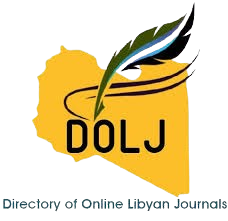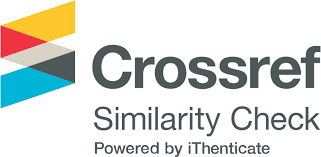أثر الخدمات الاستشارية على نزاهة واستقلالية المراجع الخارجي
دراسة تطبيقية على مكاتب المحاسبة والمراجعة بطرابلس
DOI:
https://doi.org/10.59743/jaf.v4i1.125الملخص
استهدف البحث دراسة مدى تأثر استقلالية المراجعين الخارجيين نتيجة لتقديم الخدمات الاستشارية لنفس عملاء المراجعة. ولأجل الوصول إلى تحقيق هذا الهدف، قُسِّم البحثُ إلى أربعة أجزاء رئيسة، حيث عُرِّف في الجزء الأول بمشكلة البحث وهدفه وأهميته، في حين خُصِصَ الجزء الثاني لبناء الإطار النظري للبحث، أما الجزء الثالث فقد كُرّس لعرض الجوانب المتعلقة بالدراسة الميدانية، وأخيراً تناول الجزءُ الرابع عرضاً لأهم النتائج التي تَّم الوصول إليها بالإضافة إلى تقديم بعض التوصيات المقترحة. وقد أظهرت النتائج المتحصل عليها من خلال تحليل البيانات تأثر استقلالية المراجع الخارجي بشكل كبير نتيجة لتقديم الخدمات الاستشارية لنفس عملاء المراجعة لعدة أسباب مثل: زيادة الروابط الاقتصادية بين المراجع وبين عملائه محل المراجعة مما يجعل المراجع في موقف التابع والممثل للشركة العميلة، وارتفاع نسبة إيرادات الخدمات الاستشارية مقارنة بنسبة خدمات المراجعة العادية، وتحول دور المراجع من حماية مصالح ملاك المنشاة الى حماية مصالح أعضاء مجلس الإدارة بتلك المنشآت، وتطور العلاقة بين مكتب المراجعة وبين إدارة المنشاة العميلة بحيث يصبح المكتب معتمدا على نجاح الإدارة لتكوين سمعة جيدة. بالإضافة الى ذلك تبين عدم وجود فروقات جوهرية ذات دلالة إحصائية بين إجابات المشاركين في الدراسة حول مدى تأثر استقلالية المراجعين الخارجيين نتيجة لتقديمهم للخدمات الاستشارية لنفس عملاء المراجعة تعزى للمؤهل العلمي او لعدد سنوات الخبرة العملية للمشاركين في الدراسة.
التنزيلات
المراجع
أحمد الزهار، "أثر الخدمات الأخرى التي يقدمها مراجع الحسابات بجانب خدمة المراجعة على جودة تقرير المراجع"، رسالة ماجستير منشورة، كلية التجارة، الجامعة الإسلامية بغزة، فلسطين (2013).
أحمد حلمي جمعة، " التدقيق والتأكيد الحديث – المشاكل والمسؤوليات – الأدوات والخدمات"، دار صفاء للنشر والتوزيع، طبعة 2009.
بوبكر شريعة وأسماء كويري، " توافر متطلبات معايير الأداء المهني للخدمات الاستشارية للمراجع الخارجي المقدمة للمصارف التجارية الليبية"، مجلة جامعة البحر المتوسط الدولية، العدد الثاني، بنغازي، ليبيا مارس 2017.
فوزية حامد وحسام، " اتجاه مكاتب المراجعة في المملكة العربية السعودية نحو توسيع نطاق خدماتها المهنية: تحليل ميداني مستند إلى متطلبات نظرية الوكالة"، مجلة جامعة الملك عبدالعزيز، كلية الاقتصاد والإدارة مجلد 21، العدد الثاني، جدة، السعودية (2007).
قريط عصام، "الخدمات الاستشارية واثرها على حياد المدقق في الأردن"، مجلة جامعة دمشق للعلوم الاقتصادية والقانونية، المجلد 24، العدد الأول، كلية الاقتصاد، جامعة دمشق، سوريا (2008).
اللائحة التنفيذية للقانون رقم (116) لسنة 1973.
مجلس قيادة الثورة، قانون تنظيم مزاولة مهنة المحاسبة والمراجعة في ليبيا رقم (116) لسنة 1973.
موسى علي، "استقلالية المراجع الخارجي بين النظرية والتطبيق"، رسالة ماجستير غير منشورة، جامعة قاريونس، كلية الاقتصاد، بنغازي، ليبيا، 1992.
Alleyne, P. A. Devonish, D. and Alleyne, P. (2006 a), “Perceptions of auditor independence in Barbados”, Managerial Auditing Journal, Vol. 21, No. 6, pp. 621-635.
Almalhuf, B. A. (2014), “Perceptions of Libyan external auditor independence”, National Magazine of managment, Tripoli, Libya, No 13, PP5- 40.
American Institute of Certified Public Accountants. (1978), Commission on Auditors’ Responsibilities: Report, Conclusion, and Recommendations, AICPA: New York.
Arrunada, B. (1999), “The provision of non-audit services by auditors let the market evolve and decide”, International Review of Law and Economics, Vol. 19, pp. 513-531.
Auditing Practices Board, Ethical Standards (2004).
Awadallah, E. (2006), “Investigating professional auditor’ perceptions of factors affecting their ability to resist client management pressure in audit disputes”, accounting, auditing and performance evaluation, Vol. 3, No. 2, pp. 220-239.
Beattie, V. Brandt, R. and Fearnley, S. (1999), “Perceptions of auditor independence: UK. Evidence”, Journal of International Accounting, Auditing & Taxation, Vol. 8, No. 1, pp 57-107.
Boritz, J. E. (1992), “Discussion of expert and novice problem-solving behaviour in audit planning”, Auditing Journal of Practice & Theory, Vol. 11, supplement. pp. 22-32.
Canning, M. and Gwilliam, D. (1999), “Non-audit services and audit independence: Some evidence from Ireland”, the Accounting Review, Vol. 8, No. 3, pp. 401-411.
Carey, J. and Doherty, W. O. (1966), “The concept of independence-review and restatement”, the Journal of Accountancy, January, pp. 38-48.
Clikeman, P. M. (1998), “Auditor independence: Continuing controversy”, Ohio CPA Journal, Vol. 57, Issue. 2.
Defond, M. L. Raghunandan, K. and Subramanyam, K. R. (2002), “Do non-audit services fees impair auditor independence? Evidence from going concern audit opinions”, Journal of Accounting Research, Vol. 40, No. 4, pp. 1247-1274.
European Parliament & the Council. (2014). Regulation (EU) No 537/2014 of the European Parliament and of the Council. Brussels: European Parliament & the Council.
Firth, M. (2002), “Auditor-provided consultancy services and their association with audit fees and audit opinions”, Journal of Business, Finance & Accounting, Vol. 29. No. 5/6. pp. 661-693.
Flint, D. (1988), “Philosophy and procedures of auditing: an introduction”, Macmillan, London.
Goldman, A. and Barlev, B. (1974), “The auditor-firm conflict of interests: Its implications for independence”, the Accounting Review, Vol. 49, No. 4, pp. 707-718.
Grout, P. Jewitt, I. Ping, C. and Whittington, G. (1994), “Auditor professional judgment: Implications for regulation and the law”, Economic Policy, October, pp. 308-351.
Gul, F. A. (1989), “Bankers’ perception of factors affecting auditor independence”, Accounting, Auditing & Accountability Journal, Vol. 2, No. 3, pp. 40-51.
Gul, F. A. Jaggi, B. L. and Krishnan. G. V. (2007), “Auditor independence: Evidence on the joint effects of auditor tenure and non-audit fees”, Auditing: A Journal of Practice & Theory, Vol. 26, No. 2, pp. 117-142.
Harriet, A. (2014, 12 22). UK accountancy watchdog hits PwC with two separate probes. Financial Times
Higgins, T. G. (1962), “Professional Ethics: A time for reappraisal”, the Journal of Accountancy, March, pp. 29-35.
Hudaib, M. (2003), “Understanding auditor independence in Saudi Arabia: perceptions of selected groups of auditors and users”, unpublished PhD Thesis, University of Essex, Colchester.
Jenkins, D. S. and Velury, U. (2008), “Does auditor tenure influence the reporting of conservative earnings?” Journal of Accounting and Public Policy, Vol. 27, pp. 115-132.
Mautz, R. K. and Sharaf, H. A. (1961), “The Philosophy of Auditing”, American Accounting Association, New York.
Niemi, L. (2004), “Auditor size and audit pricing: Evidence from small audit firm”, European Accounting Review, Vol. 13, No. 3, pp. 451-560.
Pallant, J. (2007), “SPSS survival manual”, Open University Press, Buckingham.
Petty, R. and Cuganesan, S. (1996), “Auditor rotation: Framing the debate”, Australian Accountant, Vol. 66, No. 4, pp. 40-42.
Sarantakos, A. (1998), Social research”, second edition, Macmillan Press, London.
Sarbanes-Oxley Act (2002).
Sekaran, U. (2003), “Research methods for business”, Fourth Edition, John Wiley &Songs, Inc.
Shockley, R. (1982), "Perceptions of auditor independence; A conceptual model", Journal of Accounting, Auditing & Finance, PP, 126-143. Sonja Elisabeth Oberleitner, (2017), "The impact of auditor rotation on audit quality", Master thesis, Umeå university, School of Business and Economics, Sweden.
Wines, G. (2006), “The connotative meaning of independence in alternative audit context: An exploratory study”, Pacific Accounting Review, Vol. 18, No. 1, pp. 90-122.
التنزيلات
منشور
الرخصة
الحقوق الفكرية (c) 2020 مجلة المنتدى الأكاديمي

هذا العمل مرخص بموجب Creative Commons Attribution-NonCommercial-ShareAlike 4.0 International License.





